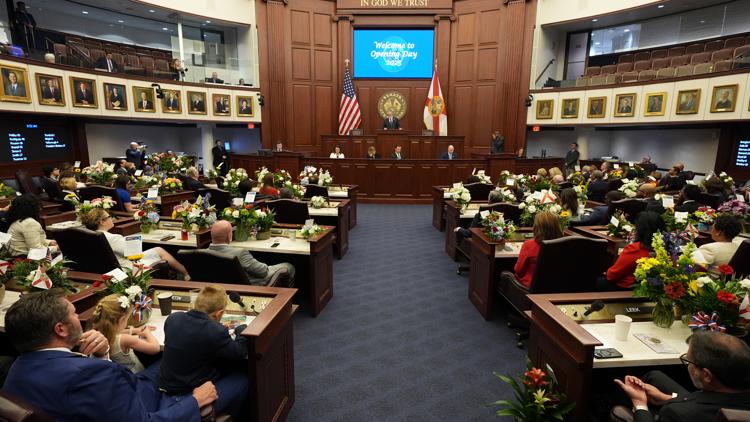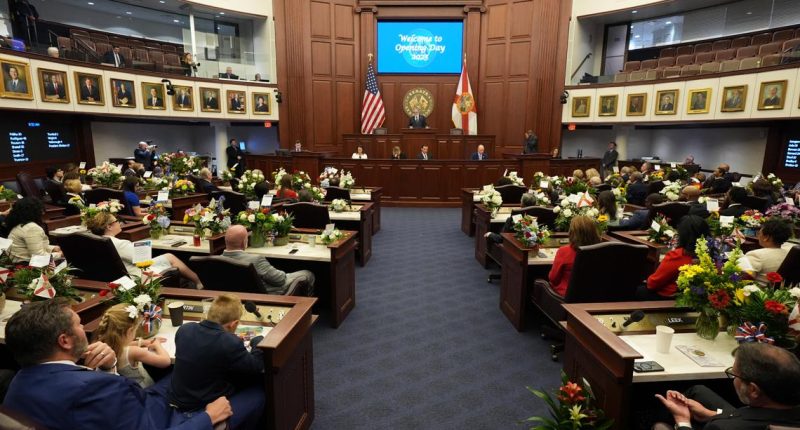Share this @internewscast.com

Florida lawmakers voted on the $115 billion state budget late Monday, ending weeks of legislative gridlock and concluding a long-extended session.
TALLAHASSEE, Fla. — Ending weeks of delay and avoiding an unprecedented government shutdown, Florida lawmakers gave their approval to a $115 billion state budget late Monday night, concluding a lengthy extended session.
The vote occurred shortly before 11:30 p.m., following a mandatory 72-hour “cooling off” period that commenced on Friday when the budget deal was completed.
“This budget represents positive progress for Floridians,” stated Senate President Ben Albritton (R-Alachua), highlighting significant investments even as overall spending was reduced by $1 billion compared to the previous year.
After an original budget “blow up” led to the session being extended by more than 40 days, lawmakers finalized the spending plan over the last few weeks, aiming to cut spending while eyeing a potential future shortfall and the uncertainty of future federal funding as a reason for a more conservative approach.
“We have spent money responsibly in a way that we’re proud of while stacking up reserves and returning money that, quite frankly, we thought we could give back to the taxpayers,” House Budget Chair State Rep. Lawrence McClure (R-Plant City) said.
The budget includes approximately $1.3 billion in tax relief, highlighted by the permanent elimination of Florida’s business rent tax, a long-time target of the business community and Governor Ron DeSantis. Permanent sales tax holidays will also be implemented for back-to-school supplies and hurricane preparedness items such as batteries and tarps.
“Will you save a ton of money because of what we do? Probably not,” Senate Budget Chair Ed Hooper (R-Clearwater) said. “But you will save some.”
Democratic lawmakers say they support fiscal responsibility but urged the state to better prepare for potential federal funding cuts to Medicaid and FEMA programs.
“Given projected cuts, I think the state should be preparing to help carry people through a time, not just looking for ways to cut funding,” House Minority Leader State Rep. Fentrice Driskell (D-Tampa) said earlier this month.
Once passed, the budget heads to Gov. Ron DeSantis, who has the authority to issue line-item vetoes before signing it into law. He’ll have a few weeks to review the bill before the new fiscal year begins on July 1.

















